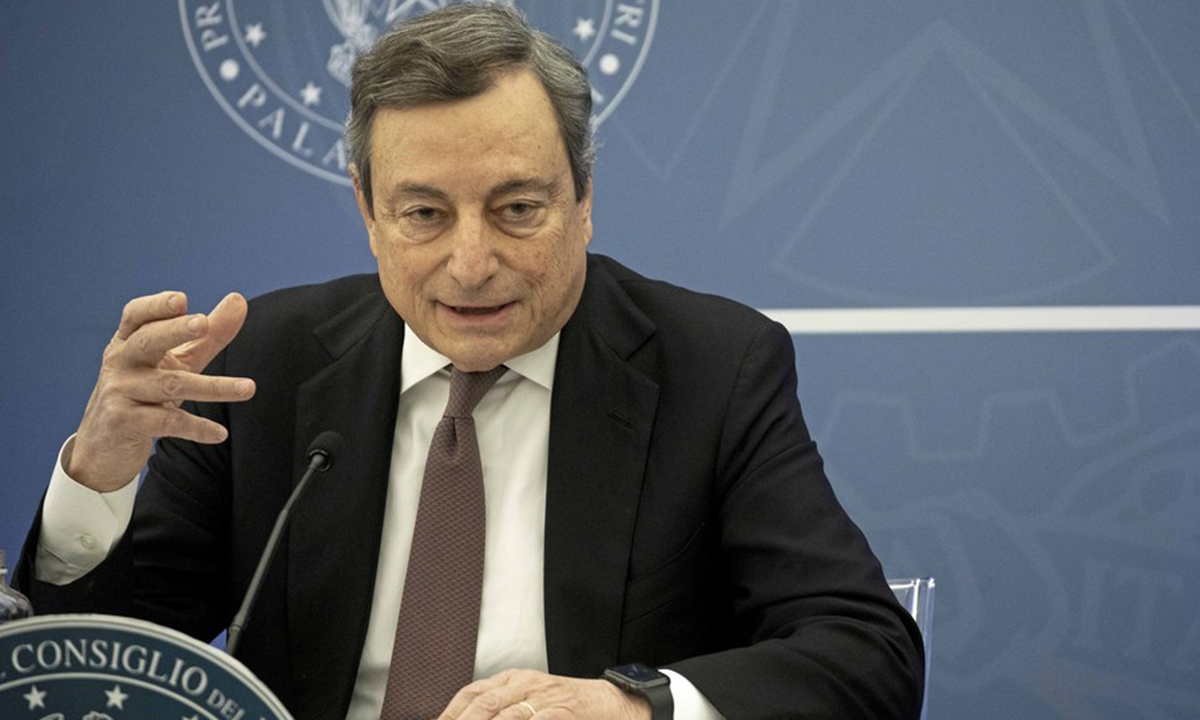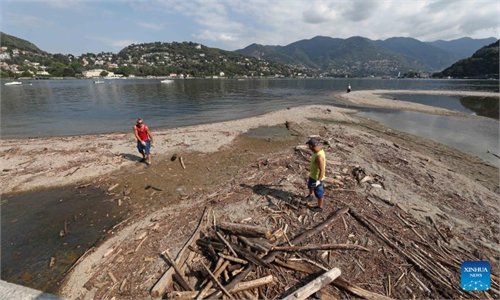
Italian Prime Minister Mario Draghi Photo: Xinhua
Italian Minister of Foreign Affairs Luigi Di Maio warned on Friday that the turmoil engulfing Mario Draghi's government threatens to deny Ukraine vital military support in "its fight against Russia," according to a Politico report. A day earlier, Italian Prime Minister Draghi tendered his resignation after the collapse of his coalition, where a key party Five Star Movement (M5S) pulled its support for Draghi's government.In general, the resignation of the head of the government of a European country is related to the domestic situation, but diplomatic miscalculations and wrong policies - for example, Italy's tough approach against Russia - must have exacerbated his or her disadvantage. Italy's support for Ukraine along with other EU countries and the step-by-step increase in sanctions against Russia are detrimental to solving domestic problems in Italy.
Under the leadership of Draghi, Italy has taken a tough line against Russia including cutting its reliance on Russian gas imports to 25 percent, from about 40 percent at the start of the year.
The embargo on Russian crude oil and petroleum products imposed by Western countries has led to soaring global energy prices, which have become a problem that engulfed many countries, causing higher production and living costs as well as increasing pressure on ordinary people in many EU states, including Italy.
Italy's annual inflation rate rose to 8 percent in June, the highest level since it was at 8.2 percent in 1986, according to Italian national statistics agency, saying energy was the driver of the soaring prices. But Draghi apparently attached more importance to the conflict in Ukraine, saying in April that "Do we want to have peace or do you want to have the air conditioning on?" After Draghi offered to step down, Di Maio claimed that the attack on Draghi from Giuseppe Conte, current party leader of M5S, is "helping Putin's propaganda and autocracy over democracy." This is absurd and an irresponsible use of external enemies to defuse an internal crisis.
The Italian government's crisis could set a bad example in Europe, after which other European leaders are likely to be in a similar situation. In June, French President Emmanuel Macron lost his parliamentary majority with rising cost of living one of the factors. There's no doubt that the political cohesion in many European countries has been disrupted as their policies regarding the Russia-Ukraine crisis have been kidnapped by the US.
The turmoil and strife in their legislative and executive bodies rise while majority parties are weakened. If European countries continue to blindly follow the US' policy, their political leaders should be prepared to face consequences.
What makes the formation of stable governing majorities ever more difficult is that the European integration process has become a tool of US global strategy, since Europe is tying itself too tightly to Washington.
The integration has instead become a major cause of European division, which no one had expected.
More countries and people in Europe are questioning the vision of European integration, giving rise to nationalists and populists in those states. Voices supporting integration weaken gradually, while voices from opposing political parties and the public that support nationalism getting louder. This indicates that Europe is on the edge of another danger. If the situation worsens, in the end, the European integration vision that unites regional countries will eventually fail. Or even worse, the continent could fall into conflicts as a result.
The politics of EU member states are contagious: A crisis in one country will soon spread to others, and the rise of the right wing will quickly expand beyond borders, and even the US may not be able to escape such a general trend. The world is in a precarious state, and we must remain vigilant.

